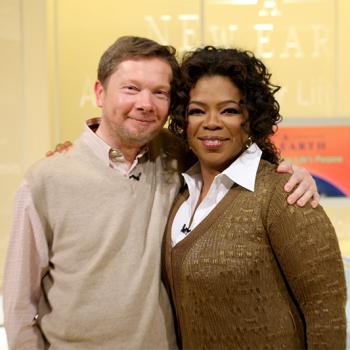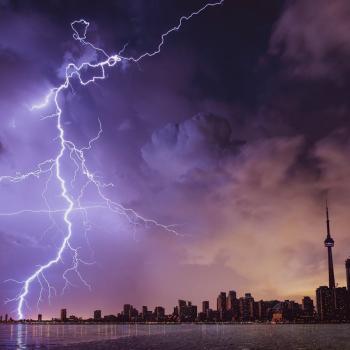Our summer book series at Journey Church is wrapping up, and Sunday our community talked about the last of the four seasons of faith described in Brian McLaren's book Naked Spirituality: Harmony. After the chilling winds of Perplexity, when questions seem to batter us like hail pounding on our roof of belief, leaving damaging holes and leaky spots, we wonder if we will ever make it to the other side. And then a day comes, or perhaps just a moment, when we experience a wholeness that lifts us out of despair and into that place where we are no longer against something but with everything. We are, in that moment, bowled over by benevolence, overwhelmed by the power of this love that holds all things together.
And then the person of Perplexity within us begins to nag us, tugging at our hem, asking, "What about the big questions? What about the problem of poverty? What about all the suffering in the world?" At this point, we wonder if we must choose: bliss over burden, the hope of love over prophetic declaration. It is a Bermuda Triangle waiting to suck us into indecisiveness indefinitely.
When you feel the depth of the world's questions in Perplexity, to move forward feels like both a freedom and a death. And, as we discussed it amongst our church community, we worry that it can become, if not careful, a form of benign resignation.
Community member Kerri summarized it this way: "I used to tell myself that I would never stop feeling that sort of "passion"—that wondering, aching heart and soul and mind. I told myself that the angst was good, and it meant that I was alive and smart and thinking and open to a new kind of awareness. Even if it made me lose some sleep at night, even if I worried and developed back spasms from the stress of contemplating the cosmos.... it was worth it because I was at least trying to expand my brain. I didn't want to get myself into a narrow-minded tunnel where the only thing I saw in front of me was one foot in front of the other. That was a trick that time played on people, and it was why so many older people I know were complacent and apathetic, blindly accepting it all as 'just the way it is.'"
The bulk of our discussion on Sunday sought to make meaning out of this fear and tension. There is a kind of "harmony" that is, in fact, mislabeled apathy, a green-washing advertising campaign, and it is against this that we kick and scream and wrestle. How can we distinguish that false harmony from the deep and full wholeness that comes from true harmony with God?
A telltale sign is the response to conflict. If conflict or questions are tsk-tsked away in pursuit of maintaining the status quo, you can bet you've been green-washed. If conflict or questions are heard, and are received and responded to without a need to yell or denigrate, you've stumbled on harmony. On a lighter note, if there are two boats, and one is false harmony and the other is true harmony, you can lay odds that the people on the false harmony boat will have labeled it as such with big, flashy letters along the side (Harmony!) and perhaps created some chants and songs to sing to passersby. The people on the true harmony boat are living their lives to the full, quietly, purposefully, and without ceremony. There is little to see, but the work that they put to their hands is the kind of work that nourishes the world. It is the kind, to quote Ephesians 2:10, that is God's kind of workmanship, the kind that has been prepared for us to do.
To live in harmony is to move from being the heckler in the stands to the player on the field, clear about his position, willing to work together with the team. You don't lose yourself in that place. You don't lose your passion, or your opinions, or your very real questions, either. You just find a way to direct them intentionally, in the proper directions, to a right degree. There is no longer any need for shoving, or heckling, or picketing, because you've seen that the world holds together by a Love that is more powerful than anything you could possibly conjure. And you realize, finally, that the world will reflect this Love more by your intentional life than it ever could by your self-important lecturing.
As community member Rob quoted on Sunday, you know what Mother Teresa meant when she said that you cannot do great things, only small things with great love.
8/9/2011 4:00:00 AM





